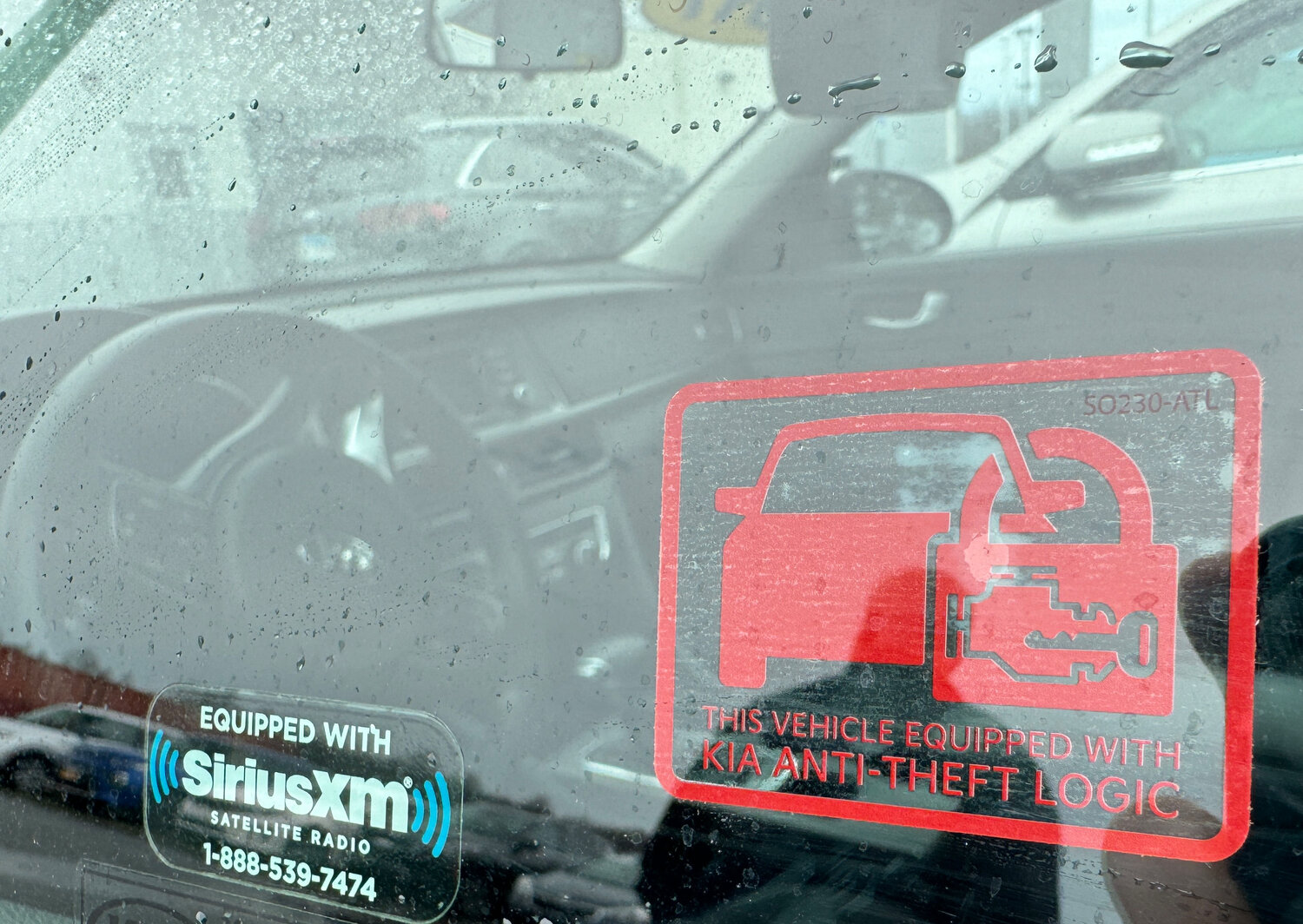Kia thefts in Delaware: How to know if you are vulnerable and how to protect yourself
FELTON – For the past year and a half, Kias have been the target of car thieves across the country after a tutorial popped up on TikTok teaching viewers how to do it.
Delaware is …

You must be a member to read this story.
Join our family of readers for as little as $5 per month and support local, unbiased journalism.
Already a member? Log in to continue. Otherwise, follow the link below to join.
Please log in to continue |
Kia thefts in Delaware: How to know if you are vulnerable and how to protect yourself
FELTON – For the past year and a half, Kia vehicles have been the target of car thieves across the country after a tutorial popped up on TikTok teaching viewers how to do it, and quickly spread to other social media platforms.
Delaware is not immune. On Feb. 16, a 13-year-old and a 14-year-old were arrested and charged with several felonies in Dover for allegedly attempting to steal a Kia using the viral method.
This is far from the only example.
According to Michael Hays, service director for Holly Kia in Felton, the viral method is nothing new, exploiting a vulnerability that can be found in many cars other than Kias.
“What has been done to these cars can be done to almost any keyed entry car on the road today,” said Mr. Hays. “Basically, they just go in there with a screwdriver and a hammer and they just bust into the ignition switch, and completely knock it out of the steering column. And they get behind it and then manually, with pliers or some other kind of tool, they’ll turn the mechanism over to start the car.”
Mr. Hays attributes the targeting of Kias to the Kia Boyz, an online group that he says popularized the theft method, and features Kias prominently in its videos. Hyundai, which shares a parent company with Kia, is also a popular target.
“It’s been our experience from talking to law enforcement over the past year and a half that since it’s 14-, 15-year-old kids, they’re stealing these cars to joyride them for a few hours and wreck them into something and just abandon them.”
Because it requires a keyed ignition, push-button start cars are not usually targeted. Mr. Hays says he has not seen a stolen Kia come in for repairs with that ignition method.
Kia has a couple of different methods to protect owners of these vulnerable vehicles.
Dealers offer a free software upgrade that disables the ignition if the car is locked with a key fob. Ignition is then re-enabled when the car is unlocked via the fob. This means that if a thief breaks into the car, they may still cause damage, but the car will not start, and they will not be able to drive away. It repurposes the cars’ body control module, an internal electrical communication hub inside most vehicles, to make this work.
Kia places a sticker on these cars reading “This vehicle is equipped with Kia anti-theft logic” to help deter thieves from breaking in.
Next is the use of a steering wheel lock. Many law enforcement agencies handed out free locks last year, one of which was the Wilmington Police Department, which held its event in July. Mr. Hays says the locks work as a great deterrent as they are highly visible and can cause would-be thieves to pass it by.
Finally, there is a brute-force solution. A metal shell is installed around the ignition and held in place with strong epoxy, making it nearly impossible to break the ignition switch off.
“These people would have to take a hammer and chisel for about 45 minutes to get it off,” said Mr. Hays. “And no one’s going to take that kind of time to steal a car. So, it’s a very effective anti-theft device that we add to the cars that are too old or just don’t simply have the electronic capacity to be reprogrammed.”
Mr. Hays said Holly Kia itself has fallen victim to these kinds of crimes.
“Our security cameras will watch the kids come through here and they’ll double check 10 doors, 15 doors on cars and if they’re locked, they move on to the next one.”
In Holly Kia’s case, very few new key-ignition cars are sold these days, and Mr. Hays thinks that in the future they’ll be phased out entirely.
Regardless, Mr. Hays says that any Kia or Hyundai owner that may be vulnerable should call their dealer to see if they qualify for the software or metal shell upgrades, which are considered repair benefits and therefore free.



 By
By 



